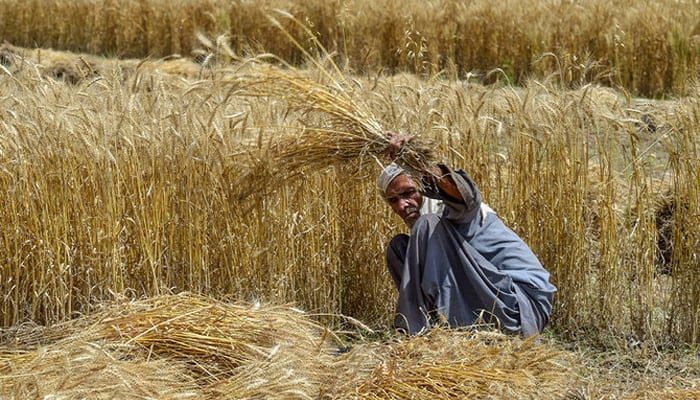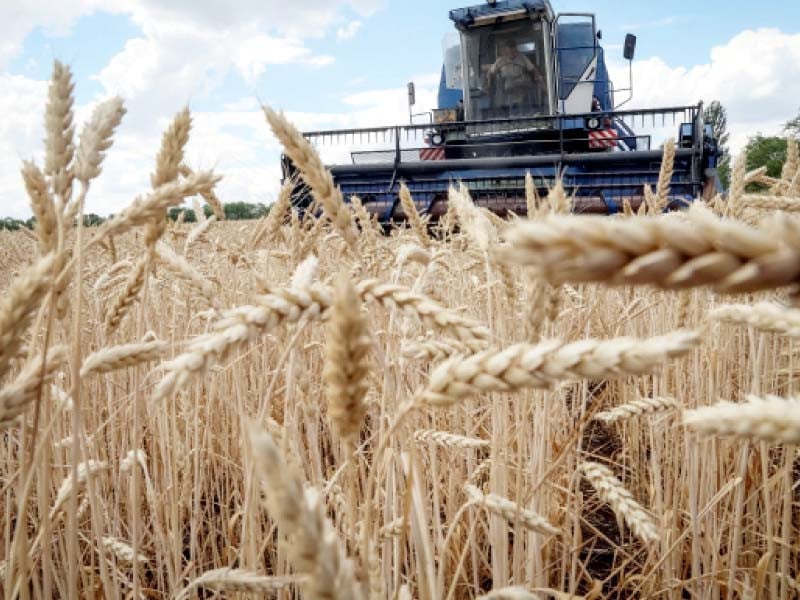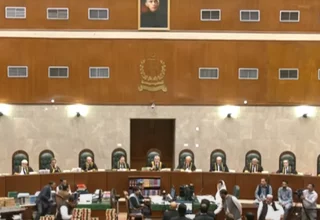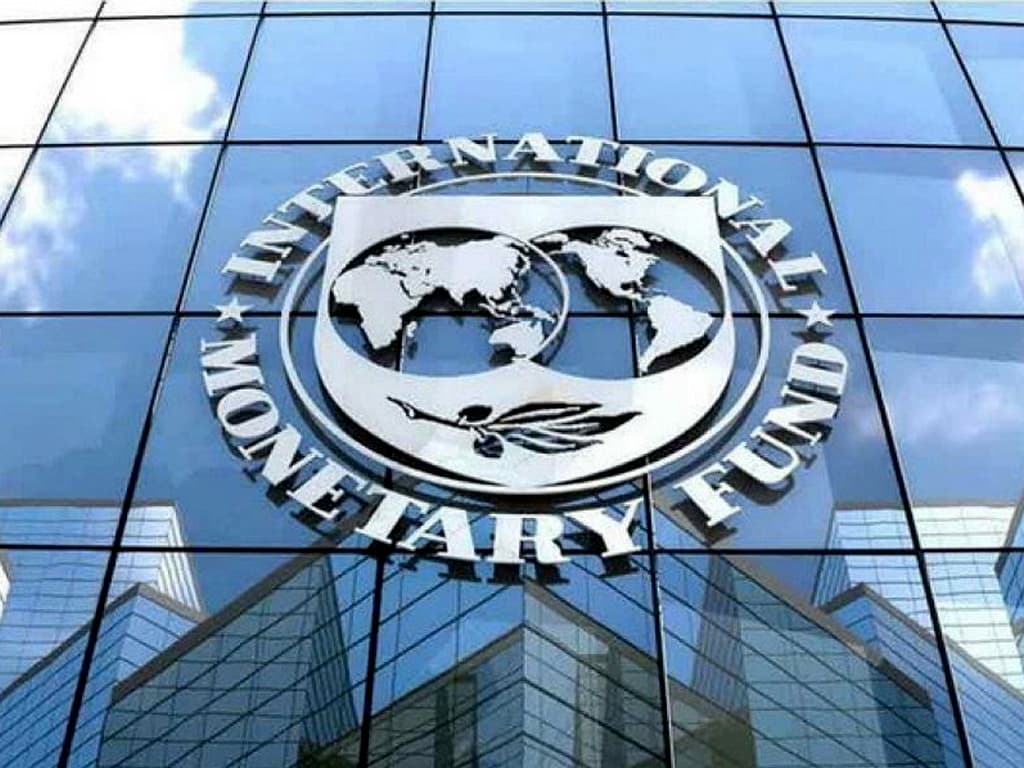Pakistan’s agriculture sector is at its lowest ebb after devastating rainy season that has wracked the country. The impact of the recent unprecedented floods have lingering effects that are now being badly felt in the country.
Even before such natural calamity, the agricultural scenario of the country was far from satisfactory. Although, Pakistan’s total land area is about 803,940 square kilometers but about 48 million hectares, or 60 per cent, is often classified as unusable for forestry or agriculture and the rest consists mostly of deserts, mountain slopes and urban settlements. Even these figures are somewhat doubtful as official agencies in Pakistan are prone to figure-fudging making the actual state of affairs very murky. This fact is given credence when it is mentioned that some authorities include part of this area as agricultural land on the basis that it would support some livestock activity even though it is poor rangeland.
Thus, estimates of grazing land vary widely–between 10 per cent and 70 per cent of the total area. A broad interpretation, for example, categorises almost all of arid Balochistan as rangeland for foraging livestock. The official estimates list only 6 million hectares, largely in the north, as forested out of which 41.9 million hectares were cultivated, Around 70 per cent of the cropped area was in Punjab, followed by about 20 per cent in Sindh, less than 10 per cent in the North-West Frontier Province, and only 1 per cent in Balochistan. Agricultural yield, therefore, in Pakistan had long stagnated due to the absence of comprehensive policy measures to reform the sector. Despite the central role that agriculture plays in the economy by contributing around 20 per cent to GDP and absorbing almost 40 per cent of the labour force, it continues to lag behind its potential.
The dilapidated situation prevailing in this crucial aspect of national economy has made successive governments to reform the sector but to no avail. The present coalition government has now given taken up the issue and has announced launching a comprehensive plan to reform the agricultural sector on an emergency basis in order to increase agricultural production, reduce imports of agricultural products and improve the livelihood of the farming community in the country. In this context, the government has asked all concerned ministries to prepare a reform plan on an emergency basis starting from the next crop season and submit it to him within two days. It was also mentioned that the effects of climate change on the agriculture sector should be considered while preparing the reform plan.
Since independence, the amount of cultivated land has increased by more than one-third. This expansion is largely the result of improvements in the irrigation system that makes water available to additional plots. Substantial amounts of farmland have been lost to urbanisation and water-logging but losses are more than compensated for by additions of new land. There is a profound need for more irrigation projects to increase the area of cultivated land. The scant rainfall in the past over most of the country made about 80 per cent of cropping dependent on irrigation. Fewer than 4 million hectares of land, largely in northern Punjab and the North-West Frontier Province, are totally dependent on rainfall. An additional 2 million hectares of land are under non-irrigated cropping, such as plantings on floodplains as the water recedes. Non-irrigated farming generally gives low yields and although the technology exists to boost production substantially, it is expensive to use and not always readily available.
The government is acutely worried about the rapid rise in average global temperatures calls for a shift from conventional agricultural patterns to a sustainable and climate-friendly approach. It is widely acknowledged that increases in temperatures beyond a certain level are causing a massive reduction in yields and leading to food insecurity. The impact of climate extremes is exponential considering that most of developing countries are heavily reliant on agriculture, which makes up a major chunk of their GDP, employment and foreign reserves. It is widely noted that the past few years have witnessed constant food shortages due to low yields, resulting in elevated food prices, double-digit inflation and a deteriorating current account as major staples were imported. To ensure food security and adequate nourishment for the ever-growing populace the ailing agriculture sector must be rescued through sustainable solutions.
Pakistan currently is experiencing major climate change challenges to agriculture including frequent floods, droughts, irregular rainfall, soaring temperatures and pest attacks. Floods, which are now a regular calamity, wash away agricultural produce along with soil nutrients, at times leaving the land uncultivable. Irregular rain patterns and water scarcity have effectively caused land output to wither away. Pest attacks, like locust invasions, pose a grave threat as crops can be devastated almost instantly.
Keeping in view these factors, the coalition government had formed eight sub-committees to reform the agricultural sector, submitted their reports recommending short-, medium-, and long-term reform plans. Detailed briefings by the heads of sub-committees on wheat, cotton, edible oil, fertilisers, agricultural research, irrigation water, climate change and agricultural machinery. The recommendations pertained to concrete measures for enhancing production of wheat, cotton, and edible oil during the next rabi and kharif seasons, besides provision of the latest farm implements to farmers at low cost, subsidy on urea and DAP, production targets with provision of exporting surplus crops, certified seeds, efficient use of irrigation water, and timely sanction of loans to farmers.
The government would provide incentives to farmers on a priority basis. The government will ensure that farmers are provided with certified seeds and fertilisers at a reduced cost and that the companies selling uncertified seeds and pesticides should be dealt with strictly. The government has decided that the agricultural research institutions that produce quality seeds within the country would be encouraged and facilitated. The government will provide loans to farmers to acquire the latest agricultural machinery. In addition, the government would soon take the initiative to build silos to store agricultural produce that is threatened by post-harvest climatic conditions.
In this context, all concerned ministries and departments are required to take steps to achieve and surpass the production target for the next wheat crop and it should also be ensured that the subsidy on agricultural inputs reaches farmers. The government has emphasised that efforts would be made to introduce to the farming community the best practices of agriculture in the world and a comprehensive awareness programme would be launched in this regard. The government is acutely worried about the rapid rise in average global temperatures calls for a shift from conventional agricultural patterns to a sustainable and climate-friendly approach. It is widely acknowledged that increases in temperatures beyond a certain level are causing a massive reduction in yields and leading to food insecurity.
It is also worth noting that it is indeed unfair that most of these developing countries bearing the brunt of climate crisis have least contributed to it. Pakistan, for example, contributes less than 1 per cent to global greenhouse gas emissions, yet it is the fifth most vulnerable country to climate change. The solution lies in implementing climate-friendly policies focusing on adaptation and mitigation and this perhaps is the top priority of the coalition government and may well switch from only a few crops that are now producing low yields to other crops which can better survive the changing climatic conditions.





























